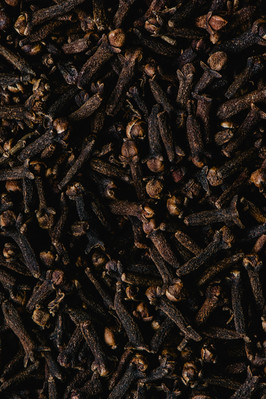Zanzibar Culture, History & Traditions: Explore the Spice Island
- A

- Aug 18, 2025
- 3 min read
Updated: Aug 20, 2025
When you hear Zanzibar, your mind probably drifts to hammocks, turquoise waves, and barefoot sunsets.
But wait, it is more than just a honeymoon postcard.
Zanzibar is a living, breathing storybook where spices perfume the air, history hides in every alley, and cultures blend in a way found nowhere else on Earth.
Ready for a sensory journey? Karibu (welcome) to Zanzibar’s cultural soul.
A Quick Journey Through Zanzibar’s History
Zanzibar sits at the heart of the old Indian Ocean trade routes.
Picture dhows (traditional boats) sailing between Africa, Arabia, India, and beyond, carrying ivory, gold, and cloves. Over centuries, these trade connections turned the island into a vibrant crossroads of cultures.
The influences are all around you: Islam and ornate architecture shaped the cityscape, spices and culinary traditions from the wider Indian Ocean enriched the local cuisine, and European arrivals left their mark with forts, trade structures, and governance systems. Together, they created the unique cultural tapestry Zanzibar is known for today.
Music, Dance & Famous Faces
If you stroll through Stone Town at night, you might hear Taarab music drifting through the alleys—a mix of Arabic strings, African drums, and Indian rhythms. Weddings? They’re full-on Ngoma drumming sessions that could get anyone dancing.
Oh, and speaking of music legends…
Did you know Freddie Mercury was born in Zanzibar? That’s right. The Queen frontman grew up in Stone Town before taking the world stage.
Stone Town: Zanzibar’s Cultural Heartbeat
Walk into Stone Town and you’ll feel like you’ve time-traveled. Narrow streets twist like spaghetti, lined with carved wooden doors, tiny shops, spice markets, and the occasional cat napping in the shade.
Top stops include:
The House of Wonders – once the Sultan’s palace.
Darajani Market, for a sensory overload of spices, seafood, and chatter.
The Old Fort, built by the Portuguese, later used by Omani Arabs.
The Zanzibar Slave Museum – a powerful reminder of the island’s complex past.
Freddie Mercury Museum – celebrating the life of the legendary Queen frontman who was born in Stone Town.
The Spice Island Experience
They don’t call it the Spice Island for nothing. Cloves, cinnamon, nutmeg, black pepper, and vanilla thrive in Zanzibar’s tropical soil. Visiting a spice farm is part jungle walk, part cooking class, and part perfume shop.
Fun Fact: In the 19th century, cloves were so valuable here that they were nicknamed “Zanzibar’s gold.”
Biodiversity: More Than Just Spices
Zanzibar isn’t just cultural—it’s also an ecological treasure chest.
On land: Monkeys (hello, red colobus of Jozani Forest 🐒), giant baobabs, and rare butterflies.
In the sea: Coral reefs, dolphins, whale sharks, and sea turtles.
In the air: Over 200 species of birds call the archipelago home.
Did you know? Zanzibar is one of the only places in the world to spot the endangered Kirk’s red colobus monkey, found only here.

Traditions on a Plate
Zanzibar cuisine is a festival of flavors. Expect rich curries, coconut stews, spiced rice, smoky grills, and much more.
Signature dishes you can’t miss:
Pilau rice – spiced rice with meat or veggies.
Urojo soup – a tangy street-food curry broth.
Octopus curry – spicy, creamy, unforgettable.
Mishkaki – skewered barbecue beef, chicken, or fish, marinated in chili, lime, and local spices, then grilled over open flames, best eaten hot off the street-side grill!
Fresh seafood platters – lobster, prawns, calamari, and reef fish, often grilled with garlic, chili, and coconut.
For a real treat, head to Forodhani Night Market, where stalls light up the waterfront with sizzling seafood feasts.
Why Zanzibar’s Culture Matters
Zanzibar isn’t just a beach escape—it’s a living example of how trade, migration, and tradition can create something magical. The island continues to celebrate its Swahili heritage, even as it welcomes modern tourism.
When you wander through Stone Town, sip spiced tea with locals, or dance to taarab, you’re not just a tourist—you’re part of a story centuries in the making.
Beyond the Beaches: The Soul of Zanzibar
Zanzibar’s culture, history, and biodiversity prove it’s more than paradise, it’s a cultural kaleidoscope. From clove-scented breezes to taarab rhythms, the island invites you to slow down, taste, listen, and connect.
Wondering how to explore Zanzibar responsibly and respect its unique culture and environment? Discover practical tips and insights in our Island Life Guide: Zanzibar Edition.






























